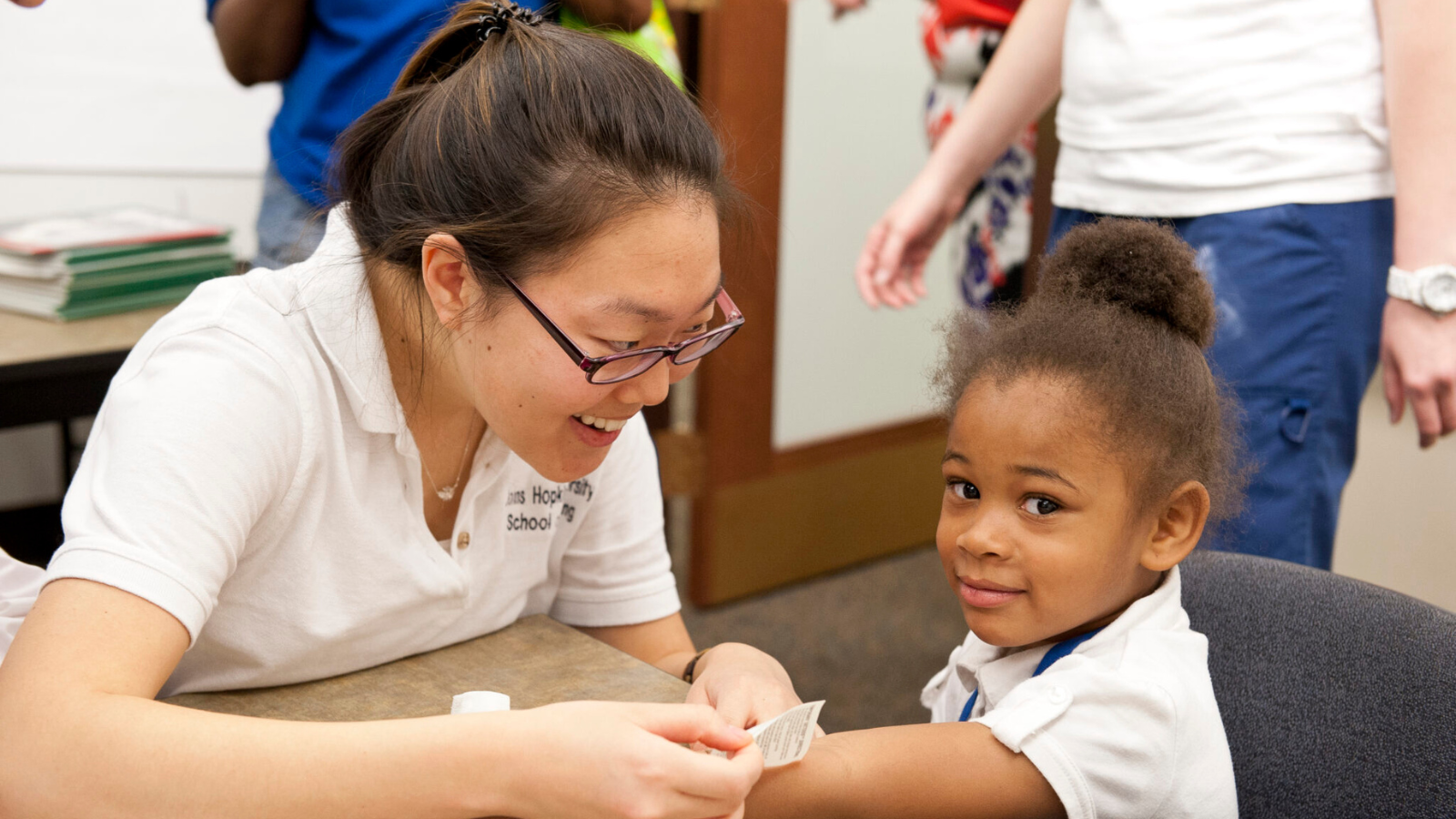As the school year begins, Christal White, BSN, Nurse Supervisor of the School Health Nursing program, along with Natasha Harris, RN, and Lindsey Weer, BSN, share some important perspectives for school nurses everywhere to be mindful of.
Autonomy
This word holds weight with many people of all ages and walks of life. Having a job with autonomy can be a dream, but for some it can be a bit trying, or scary even. As a school nurse, you have autonomy. Your health suite is your island, your fortress and maybe even your second home. This can be overwhelming. Knowing when to tap into your resources is important to remain focused and successful in your role. As the sole healthcare professional in a building with hundreds of people, it can be intimidating. Creating a chat amongst your peers is a helpful resource when trying to make decisions about treatments and referring students when needed. Know that you are not alone, you are in a community.
Being the only nurse in a school, large or small, can feel lonely. Most jobs you have coworkers that you can talk to, or interact with. Although you may have the company of the students you see, not having that adult interaction with your fellow coworkers can leave you feeling a bit isolated. Joining a group on social media can help with the feeling of Isolation. There are dozens of school nursing groups that not only offer advise and guidance, but it is also a means to communicate with others when you feel alone. These groups offer tips from decorating your suite, to organizing your students care and charting systems.
A Shift in School Population
Many of the nurses who are a part of the JHSON team of school nurses have noticed a shift in student enrollment this year. It is believed to be a result of the current federal government administration. Due to the increase of deportations in the US, many people fear being detained and or deported, so they opt to not enroll their children. One school in particular has seen a decrease of around 100 or more students.
You Will Do a Lot of Parenting
One of the biggest surprises for me was how much parenting comes with the role. From guiding behavior to offering comfort and encouragement, I often feel like I’m standing in for a parent during the school day. Students come to me not just for medical concerns but for advice, reassurance, or even a listening ear. It was a huge adjustment coming from an office setting, but now I embrace it. – Natasha Harris, RN
Remember the Reward
Despite the challenges, being a school nurse is incredibly fulfilling. You get to see the difference you make in students’ lives every single day. Whether it is treating a scraped knee, helping a student manage a chronic condition, or just being a source of comfort, the impact is real. I wouldn’t trade this job for the world. – Natasha Harris, RN
Know Your School Community
Every student population is different, and it’s important to understand the demographic you serve. Meeting families where they are and showing respect for their needs builds trust. I always remind parents that I care for their children as if they were my own. That trust makes it easier to work together and ensures students feel safe and supported. – Natasha Harris, RN
I wish I would have known the importance of setting expectations, policies and procedures from the beginning. When I first started, teachers were sending students for EVERYTHING and many kids were coming without passes so there was no accountability for who was responsible for each student. I implemented a run that EVERY single student MUST have a pass with their full name to be seen in the health suite (with the exception of emergencies). Additionally, I was seeing so many stomach aches that were magically cured by a quick trip to the bathroom. I asked staff to have all students use the bathroom prior to sending them to see me for stomach aches. This dramatically cut down on my volume. As a nurse for about 1100 students, its crucial for me to have clear expectations and guidelines so that I can provide the best care to students who actually need it.
Also, I have a background in Pediatric ER. This kind of experience has been so valuable to me as the sole provider in the health suite. Some teachers worry and freak out over things that are really not an issue. I tell my staff “If I’m concerned that this is an emergency, I will tell you! And right now, this is not an Emergency, or we don’t need to call EMS, Etc” My first month at my school, I had a teacher call EMS before I even knew what was going on and had assessed the student. It turns out that the student was having a behavior issue that was easily de-escalated without the use of EMS.
And the final thing you should know is NOTHING surprises me! – Lindsey Weer, BSN
About the Author: Christal White
Christal White is the Nurse Supervisor for the School Health Nursing Program. She began her career as a clinical tech, and worked in specialties such as med-surg, ER, OB/GYN and surgery. She decided to go to nursing school after working 10+ years as a clinical tech. She received her AA degree in nursing from Community College of Baltimore County, then went on to complete her BSN from Western Governors University. As an RN she has experience in congestive heart failure, family practice and school health.

